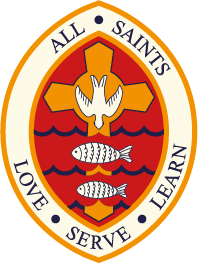Physical Education and Sports Studies
Faculty Leader: Mr D McCallum
The Physical Education curriculum has been designed to allow a broad range of physical activities to be taught to students, giving them the opportunity to excel in areas that suit their needs and interests. The curriculum encompasses a wide range of sports varying from the more traditional sports such as rugby, football, hockey and netball to newer and less traditional sports such as handball, table tennis and fitness.
Students will develop a range of skills such as leadership, teamwork, communication, resilience, sportsmanship, respect and tolerance to name but a few. These skills will help students develop their own performance in Physical Education but many are also key life skills that students can use in other areas of their studies and in later life. Students will also learn how to maintain a healthy and active lifestyle.
Key Stage 3
At Key Stage 3 students taught a variety of team and individual sports throughout the school year.
In the Autumn Term students will take part in:
- Outdoor Adventurous Activities: Orienteering, teambuilding, problem solving and leadership.
- Health and Fitness: Types of training, fitness testing and components of fitness.
In the Spring Term students will take part in:
- Invasion Games: Rugby, football, netball, basketball, handball and dodgeball.
- Net Games: Badminton, tennis and table tennis.
In the Summer Term students will take part in:
- Individual Sports: Gymnastics, athletics, dance and exercise to music.
- Striking and Fielding: Rounders, softball and cricket.
Students are assessed through a combination of teacher, peer and self–assessment, helping students identify areas for development and strategies for improvement.
Key Stage 4
All students will take part in an element of core Physical Education in Years 10 and 11. Students will have the opportunity to take part in a broad range of sport activities such as football, hockey, basketball, netball, cricket, tennis, athletics, rounders and rugby.
At Key Stage 4 students can also choose to study the OCR Cambridge National Certificate in Sports Studies. Sports Studies is a practical course and is suitable for students who have an interest and ability in sports. The assessment is a combination of theory, coursework and practical. The course is made up of four modules:
- Module 1 – Contemporary Issues in Sport (Examination Assessment 25%): Issues which affect participation in sport; The role of sport in promoting values; The importance of hosting major sporting events; and National Governing Bodies in sport.
- Module 2 – Developing Sports Skills (Practical and Coursework Assessment 25%): Participation in sport as an individual performer; Participation in sport as part of a team; Officiating in a sporting activity and Analysing and evaluating how to improve sporting ability.
- Module 3 – Sports Leadership (Practical and Coursework Assessment 25%): Qualities associated with effective sports leadership; Planning a sports activity session; Delivering a sports activity session; and Evaluate a sports activity session.
- Module 4 – Sport and the Media (Coursework Assessment 25%): Sports coverage across the media; Positive and negative effects the media can have on sport; The relationship between sport and the media; and Evaluating the media’s coverage of sport.
What can I do with a Sports Studies qualification?
The OCR Cambridge National Certificate in Sports Studies course equips students for further education within physical education at both college and university level. Sports Studies provides students with skills that are useful for in armed forces, professional sport, the police and fire services, sports centre and swimming pool attendants. The course may also be suitable for students who are interested in a career as a personal fitness trainer, sports coach, physiotherapist, Physical Education teacher or other disciplines requiring a knowledge of human Biology.
